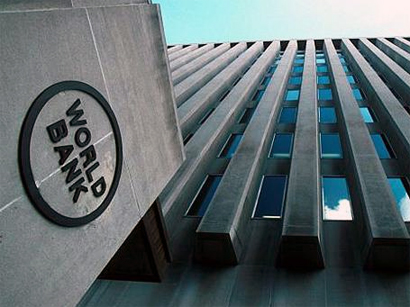BAKU, Azerbaijan, Jul. 7
By Nargiz Sadikhova - Trend:
World Bank-backed The Sustainable Livestock Development Program for Results approved for implementation in Kazakhstan is to lead to a three-fold increase in the value of beef exports, World Bank (WB) representative told Trend.
As was announced on Jul.3, 2020, WB is to allocate $500 million within the program.
The WB official said that Sustainable Livestock Development Program for Results (Program) is designed to address important public policy goals that would boost the inclusiveness, competitiveness and environmental sustainability of the livestock sector in Kazakhstan.
Inclusiveness refers to the declared government objective of promoting small and medium entrepreneurship and socio-economic development in rural areas.
“The Program will adopt the farmer-centric model, whereby linkages with high-value, export-oriented meat value chains would be promoted for small and medium farmers. Not all farmers may qualify. But those that do, would be supported to improve agricultural practices, adopt better farm management, grazing practices and improve the quality of their beef cattle, thereby benefiting by being part of the high-value export-oriented meat value chains,” the representative said.
The program aims to create 20,000 new modern small and medium farms and promote good agricultural practices in at least 100,000 small and medium farms.
In turn, competitiveness refers to the government services and enabling environment policies that would help boost the competitiveness of the livestock sector.
“Specifically, the Program would aim to improve veterinary and animal health service delivery for small and medium farms. Kazakhstan has been successful in improving its public veterinary services, as demonstrated by the evaluation of the International Organization of Animal Health (OIE),” the official said.
However, it was noted, further improvements are necessary to ensure that livestock owners can access quality veterinary care and services for improving productivity of their livestock. In addition, further improvements are necessary to bring Kazakhstan’s cattle traceability systems in line with international good practices. The Program would support these improvements.
“Environmental sustainability is important for the development of modern export-oriented meat value chains, because today’s consumers demand meat that is produced with low impact on the environment and climate,” the representative said.
In the official’s words, as production of meat, especially beef, is associated with increased greenhouse gas emissions, land degradation, water pollution and other negative impacts, consumers, both in developed and emerging markets, are demanding better environmental management and climate change mitigation by meat producers.
“Countries that have supported climate-smart systems for their livestock sectors, have been able to gain access to niche and high-value markets globally. The Program will target environmental sustainability by promoting better environmental outcomes of the Government’s agricultural support measures and by establishing monitoring mechanisms for greenhouse gas emissions,” the official said.
The representative also emphasized that in the context of COVID-19 pandemic, the World Bank’s view is that agriculture and food security, including livestock sector, could be important part for the Government’s recovery strategy.
“As the government emphasizes its key development objectives, namely diversification of exports away from minerals (especially oil) and small and medium entrepreneurship and socio-economic development in rural areas, this project comes at a momentous time to support the Government’s development objectives,” they said.
The representative added that program’s key outcomes include a 10-percent increase of the share of public expenditure in support of sustainable beef production and processing; 20,000 additional small and medium farmers linked to export value chains; and a three-fold increase in the value of beef exports.
“Implementation of the project will contribute to the modernizing of the agriculture sector and the impact on the economy is expected to be in the medium and long-term. The project will help diversify growth in Kazakhstan, increase export potentials, and raise productivity growth in the agriculture sector,” the official said.
---
Follow the author on twitter: @nargiz_sadikh






